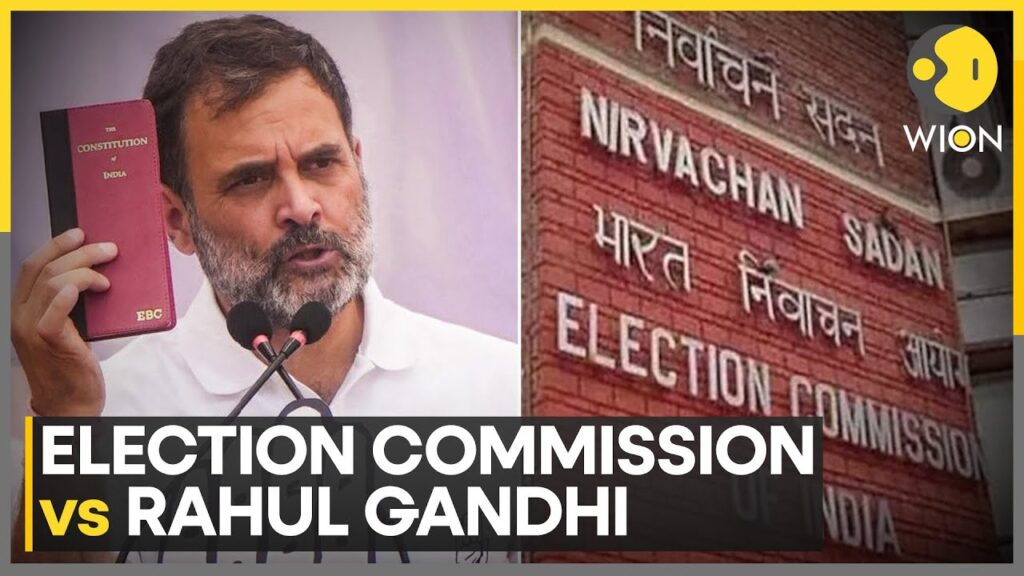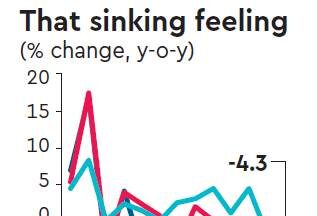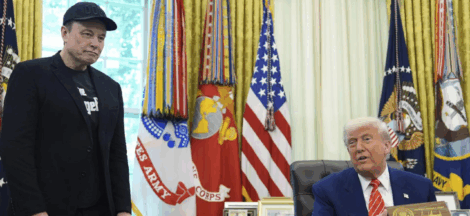A scrutiny is a careful and exhaustive examination of the facts and the ground realities. The interpretations may have the element of personal bias but it ought not to be used for setting political agenda. Nevertheless the scrutiny of Rahul Gandhi’s criticism of the role of Election Commission in conducting the Maharashtra assembly election by the experts of Indian Express newspaper reinforces the perception that the operation has the stamp of the saffron ecosystem.
The experts did not think it proper to elaborate their observation: “Gandhi’s criticism selectively cites records, ignores crucial context”. It would have enlightened the readers and exposed the intellectual bankruptcy of Rahul, if they had focused more on the records which Rahul did not mention. It is quite significant that Rahul too in his opening para has said “Voter rolls and CCTV footage are tools to be used to strengthen democracy, not ornaments to be locked up. The people of India have a right to be assured that no records have been or will be trashed”. In this backdrop the task of the experts becomes more focused..
The experts question Rahul’s observation on Narendra Modi replacing the Chief Justice of India (CJI) with a Cabinet Minister on the panel responsible for appointing Election Commissioners, over-riding a 2023 Supreme Court ruling and raising concerns about the neutrality of the selection process. As usual like a Congress hater politician, the so called experts accuse past Congress governments for not institutionalising the mechanism of appointment of judges. For adding more meat to their argument, the experts say, in 2007, the Administrative Reforms Commission, chaired by Congress leader M. Veerappa Moily, recommended a collegium system for appointing Election Commissioners, citing the “far-reaching importance” of the EC.
The ARC proposed a selection panel comprising the Prime Minister, Lok Sabha Speaker, Leader of the Opposition, Law Minister, and Rajya Sabha Deputy Chairman. But this recommendation was never implemented. But a similar proposal made by the 20th Law Commission, headed by Justice A.P. Shah, which submitted its report to the NDA government in 2015 was also not implemented. The 2023 Election Commissioners Appointment Act ensured that Election Commissioners are effectively chosen by the Prime Minister and the Home Minister by a 2:1 majority since the third member, the Leader of the Opposition, can always be outvoted.
But there is a basic difference between Congress and Narendra Modi. While Congress did not constitute a committee as suggested by ARC, Modi set up a selection committee in utter violation of democratic norms. He set up three men committee having prime minister, leader of opposition and one cabinet minister on board. Modi enjoyed 2:1 majority. Earlier the Committee was to have Chief justice of India as the third member. But apprehensive of his move in not allowing any manipulation, Modi changed the basic composition. It is indeed a matter of shame that to justify Modi’s action to have a gullible selection committee, the experts are citing an EC official’s version “Now, there is consultation, there is transparency and there is a concept of majority.”
Yet another count for which the experts are blaming Rahul Gandhi is his observation “incredible leap” relating to addition of 41 lakh new voters in Maharashtra within five months between the 2024 Lok Sabha and Assembly elections. They do not find any wrong doing. In fact EC has endorsed that number of registered voters in Maharashtra in the 2019 Vidhan Sabha elections was 8.98 crore, which rose to 9.29 crore for the May 2024 Lok Sabha elections. What is quite intriguing by the November 2024 Vidhan Sabha elections, the number leaped to 9.70 crore. A rise of 31 lakh in five years, then a leap of 41 lakh in just five months.
The manner in which the experts talk about the role of the booth-level-agents make it clear that they do not have clear concept of their role. The BLAs are to keep track of the polling procedure at the particular booth. They are to interact with the “presiding officer” not the “election official”. A presiding officer is not supposed to furnish the details of the number of voters and vote polled in the last elections. He is supposed to monitor the day’s proceeding. He is not supposed to know of the increase in the number of voters in comparison to earlier occasion. It is the responsibility of the EC to find out how this abnormal rise in voters number took place within five months. It obviously implied that either the enumerators did not devote to their task or some manipulations had taken place. For the failure of the enumerators, it is government which is responsible.
This increase obviously negates the EC’s claim that political parties are involved at every stage of preparing the final electoral roll; authorities regularly hold meetings with political parties and provide them free copies of draft and final rolls. If the process would have been strictly adhered to, this abnormal increase must have been detected much earlier.
The experts also do not subscribe to Rahul’s accusation of rise in number of votes. Under the electoral practice, the voters who reach or enter the polling station by 5 pm, or the polling time fixed by EC, they will have to be allowed to vote. In this backdrop, there is no time limitation. The BLAs will continue to sit inside the both till the last voter casts his vote. After the final voting the presiding officer informs the BLAs of the total number of votes polled. The entire process is transparent. But in the case of Maharashtra the EC could not justify its unilateral action of making public the total number of votes polled following morning.
If the political parties nursed some suspicion of some foul play, why was the EC reluctant not to dispel it, come clean? In all fairness, EC should have conveyed this message through media that owing to heavy turnout the polling would continue, even beyond mid-night. The EC claimed that in 2024, an average of 58 lakh voters cast their votes every hour in Maharashtra. Based on this, 116 lakh voters could have voted in the last two hours alone—making the increase of 76 lakh voters completely plausible. But strange enough, the surge in voter turnout was not uniform across the state. The increase was concentrated in 12,000 booths in 85 constituencies where the BJP had fared poorly in the 2024 Lok Sabha.
What was the harm in EC conceding to the request of the Leader of Opposition.? It certainly would not have eclipsed its prestige and dignity. Instead the EC tried to create a false narrative that Rahul was seeking to know the names of the voters. It was a ploy to denigrate his image among the people. He sought to know about these voters who surged to the polling booths in late night and certainly not to know whom they voted.
It is indeed ridiculous that the experts project him as naïve who does not know about the tenet of the “secrecy of voting,” a foundational principle in ensuring free and fair elections. The truth is the EC has been trying to create this impression against him. If the intentions of EC have been true and not biased, there was no need for it to shield it when it has described the sharp increase in voters as “a welcome trend in participation of youth”. If it reflected the participation of youths, it should have been got reflected across the state and not restricted to 12,000 booths
One question which EC ought to reply, why in December 2024, the EC after consultations with the Centre, amended the Conduct of Election Rules, 1961, to restrict access to electronic records? Significantly the Punjab and Haryana High Court had earlier directed the EC to share footage with advocate Mehmood Pracha. But the Commission did not share. It came out with the clarification that providing CCTV footage would amount to violation of secrecy of vote. Does EC think it knows legal implications and applications better than High Court? (IPA Service)




 The Curious Case Of Honeymoon Murder Of A Indore Husband In Meghalaya
The Curious Case Of Honeymoon Murder Of A Indore Husband In Meghalaya 